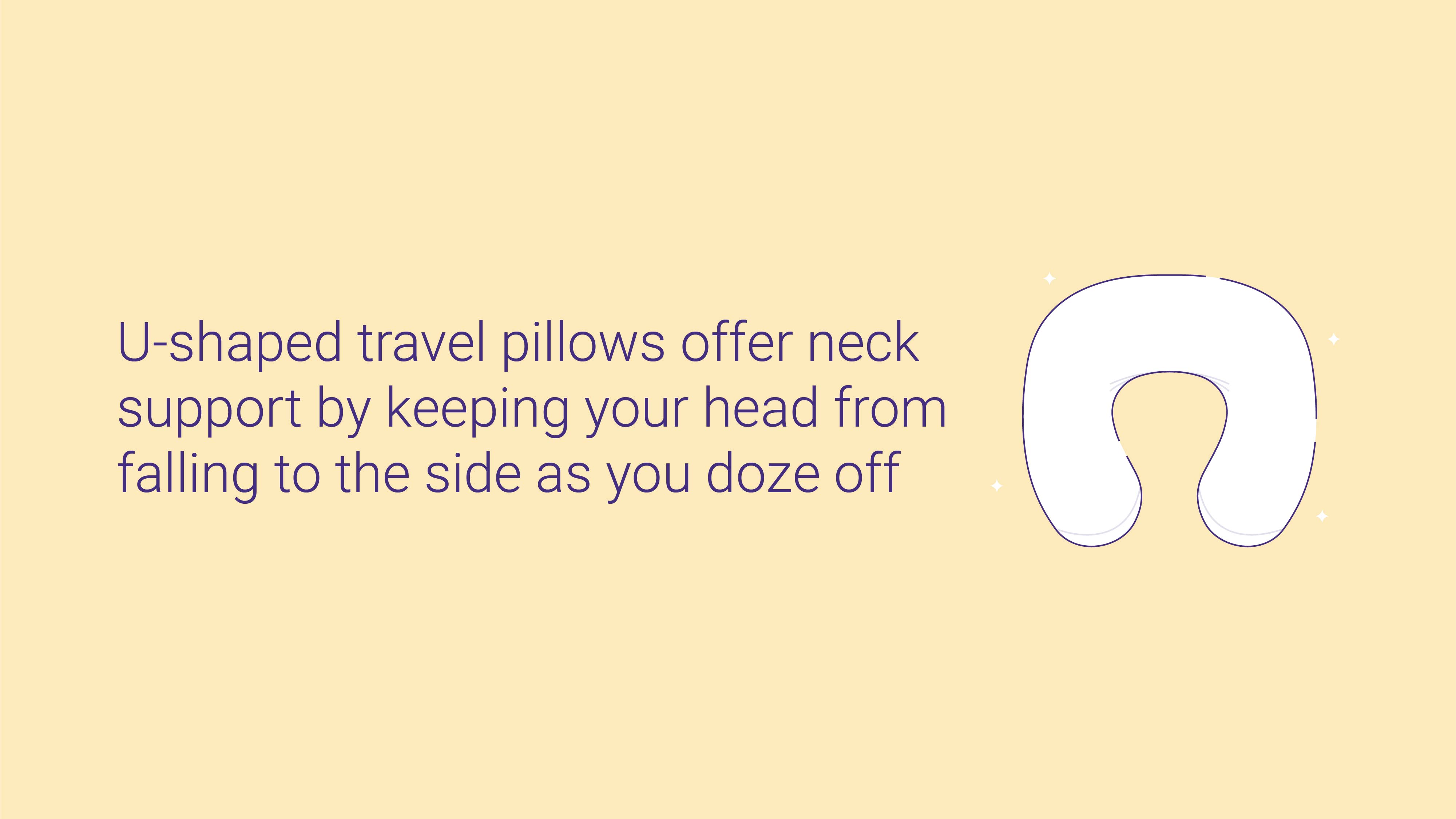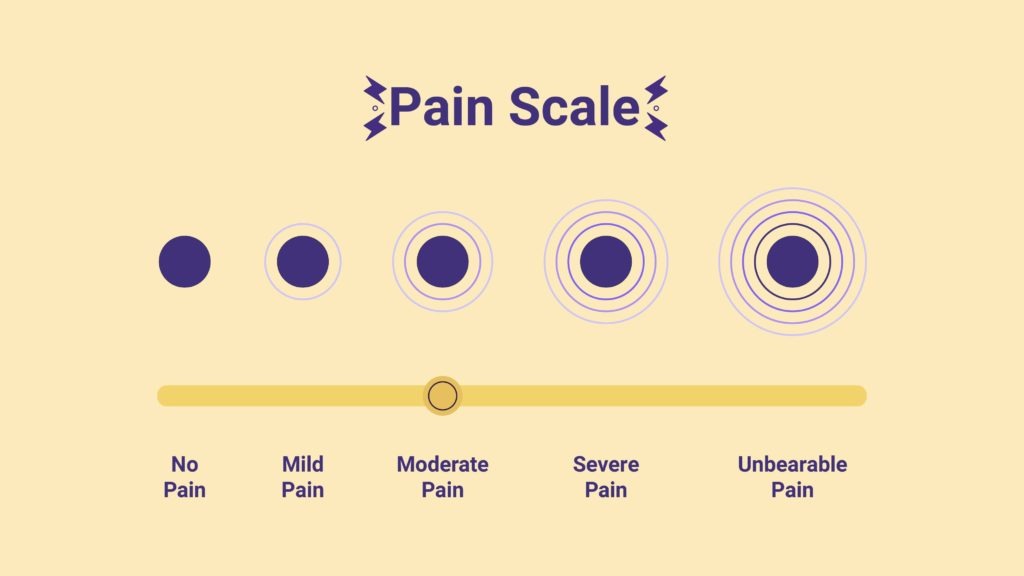Ever woken up with a literal pain in the neck? Chances are the answer is yes.
A whopping one in five adults has experienced neck discomfort within the last three months, statistics show. And often, the problem is the worst at night. Sleeping in a suboptimal position, using a worn out pillow, or even laying on an unsupportive mattress can all go a long way towards creating a literal pain in your neck.
The good news is that there are plenty of steps you can take to find relief and sleep more soundly. Here’s a look at why your neck might be sore or stiff at night or when you wake up in the morning, plus ways to have a good night’s rest.
Common causes of neck pain during sleep
Sleeping in a wonky position is notorious for causing a sore neck. But neck injuries caused by other factors can feel worse after sleeping, too. One of the most common culprits is poor posture: Spending a lot of time hunched over your computer, staring down at your phone, or even lugging a heavy bag around can leave your neck feeling sore, stiff, and uncomfortable. (It can cause significant shoulder pain too.) Same goes for twisting or turning your neck in a jarring manner, like during exercise or when lifting something.
More serious injuries can affect your neck muscles too, like falling or experiencing whiplash from being in a car accident. Neck pain can also stem from spinal problems, like herniated disks or bone spurs in your neck vertebrae.
Chronic neck pain can also sometimes simply be a part of getting older. As we age, the cartilage around the neck joints can start to wear down. That can lead to chronic pain issues like osteoarthritis in the neck.
The connection between sleep and neck pain
Does poor sleep cause neck pain, or does neck pain make sleep worse? The answer is…both. It’s no secret that lying in weird position can cause neck pain or magnify neck issues that you already have. What’s more, tossing and turning as you try find a comfortable position can make it harder to get a decent night’s rest. And the more sleep deprived you are, the worse your pain is likely to feel, notes the National Sleep Foundation.
There’s more. Did you know that poor sleep in and of itself could potentially cause musculoskeletal problems like neck discomfort? One study of some 4,000 healthy men and women found that those who reported trouble with falling asleep, staying asleep, waking up early, or not feeling refreshed after sleep were significantly more likely to develop chronic pain compared to those who didn’t have sleep issues. Experts don’t fully understand why, but it could be that sleep disruptions prevent muscles from relaxing the way they should during sleep, Harvard health experts say.
Are you at risk for sleep-related neck pain?
The truth is, anyone can wake up with a sore or stiff neck. Sleep-related neck pain is a common ailment, and most of us will experience it at some point or another. The good news is that the problem is usually temporary and will go away on its own. (Though if you need to nudge your recovery along or take steps to keep neck stiffness from happening again, just keep scrolling.)
Some people might be particularly prone to neck discomfort though. You might be at greater risk if you:
- Tend to sit hunched over or spend a lot of time in front of a computer that’s positioned too low or too high.
- Are sleeping in the wrong position, on the wrong pillow, or on the wrong mattress.
- Are older, since joint pain becomes more common with age.
- Have a chronic issue affecting your joints, like osteoarthritis or rheumatoid arthritis.
How to tell if sleep is hurting your neck
Stiffness or trouble turning your head tends to be a telltale sign of neck pain. The discomfort might feel worse when you hold your head in one place for long periods, like when you’re using the computer or driving. Neck issues can lead to headaches too, so if your noggin is throbbing, know that the two problems could be related. If your neck issue is the result of a compressed nerve, you might also notice that your arm or hand feels tingly, weak, or even numb.
Are there any ways to know for sure whether your sleep is to blame? Even if it isn’t the root culprit, it’s possible for your snooze situation to make existing neck pain worse. If you have trouble falling or staying asleep because your neck hurts or you wake up feeling especially stiff and uncomfortable, there’s a good chance that you could stand to make some improvements in the sleep department.
Treating neck pain during sleep
You’ve figured out that your snooze sessions are either causing your achy neck or making it worse. So what can you do to find some relief and start sleeping better? As it turns out, you’ve got plenty of options that can help you get a good night’s sleep.
Try a neck-friendly sleeping position
Laying in a weird position for hours and hours is a surefire way to make your neck ache. So what’s the best sleeping position to reduce neck pain?
Ideally, you’ll want to try lying on your side or on your back. Both sleep positions can encourage proper spinal alignment and keep your neck from turning at a wonky angle so your muscles won’t get strained. If you notice that your neck is extra sensitive on one side, you can relieve some of the pressure by sleeping on the opposite side.
The key, either way, is supporting your neck’s natural curve to keep your neck and spine in a neutral position. Side sleepers should use a pillow that’s higher under their neck than under their head. On your back? Try using a flat pillow and placing a small rolled towel under your neck. (To keep the towel from moving out of place, tuck it into the bottom of your pillowcase.)
The one position that isn’t really a good fit? Sleeping on your belly. Lying on your stomach means that your head is likely twisted to one side or the other for hours at a time. And that’s a surefire way to wake up stiff and sore. If you’ve always been a stomach sleeper, trying to change up your position might be tough. Still, it’s worth giving it a shot. Even if it feels strange at first, there’s a good chance that you’ll sleep more soundly and wake up with less stiffness in the morning.
Switch up your pillow.
The best pillow for your needs should keep your head and neck cradled in a comfortable position throughout the night. That means holding your neck at a neutral angle—with your nose in line with your spine—instead of encouraging wonky angles that can lead to straining.
If nighttime neck pain is a major concern, the first thing to pay attention to is your pillow’s thickness. A pillow that’s too fat or thick can bend your neck upwards, which could cause or exacerbate pain around the back of your neck. On the other hand, a too-flat pillow can cause your head and neck to face too far downwards.
Pillow filling material is worth paying attention to as well. Many people gravitate towards polyester because it’s an inexpensive choice. But it’s far from the most supportive. Feather or memory foam pillows are usually the best pillows for neck pain because they conform to your neck’s natural shape and encourage your head to lay at a neutral angle. If you go with a feather option, remember to replace it once a year. Old feather pillows tend to lose their fluff, so they don’t offer as much support.
Another tip: If you travel a lot, consider investing in a U-shaped travel pillow. It’ll offer neck support by keeping your head from falling to the side of you doze off. And that can help stave off neck strain and discomfort.

Take a look at your mattress.
Most of us spend about a third of our day in bed. Sleeping on the best mattresses, offering the right support, can help alleviate annoying neck pain, and hopefully, stop new issues from cropping up and disrupting your snooze time.
So what’s the best type of mattress for a pain in the neck? A recent survey of 62,000 people conducted by Consumer Reports found that those with neck pain felt most comfortable sleeping on an adjustable air mattress that lets users control firmness. Adjustable beds, of course, offer maximum customization. So it makes sense that they could potentially deliver the most comfort.
Memory foam mattresses are another good option. Foam-based beds are thought to conform to the body’s natural curves, which could help promote healthier spine and neck alignment. Just be sure to choose a memory foam mattress that’s on the firmer side. Though soft beds might feel plush, research shows that firmer surfaces provide more support and are ultimately more comfortable for people dealing with chronic joint issues like neck or back pain.
Other steps for managing neck pain
Sometimes neck pain relief calls for more than making some changes at sleep time. If you’re still struggling, these strategies can help.
- Consider seeing a physical therapist. Physical therapy can give you exercise to help stretch and strengthen the muscles in your neck. That can be especially helpful for coping with neck injuries or chronic pain problems like arthritis.
- Pay attention to your posture. Whether you’re standing or sitting, make an effort to keep your ears straight over your shoulders, and your shoulders straight over your hips.
- Check your workspace. Sit in front of a computer for hours most days? Make sure the monitor is at eye level so you don’t have to angle your head up or down while looking at the screen. Take plenty of breaks, too, to get up and walk around.
- Use a headset or earbuds for your phone. It puts less strain on your neck than cradling the phone in between your shoulder and your ear.
- Look at your bag. Heavy bags can strain your back and neck, so try to lighten your load when possible. Consider switching to a backpack instead of a shoulder bag too, since carrying all the weight on one side can lead to straining.
The Takeaway
Nighttime neck pain can have a multitude of causes. The good news is that there are often plenty of solutions worth trying out, starting with making changes to your sleeping position, pillow, and even your mattress.
What’s more, neck pain will often go away with at-home measures within a few days. But call your doctor if the pain persists for several days, is severe, spreads down to your arms or legs, or is accompanied by a headache, numbness, tingling, or weakness. In those cases, your pain might have an underlying cause that needs to be addressed.
This article is for informational purposes and should not replace advice from your doctor or other medical professional.

The Conversation (0)
Start a discussion, our content team tries our best to respond to comments. However replies should not be a substitute for medical advice from your doctor.*